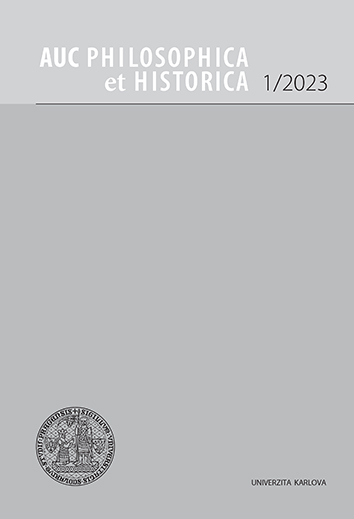AUC Philosophica et Historica je víceoborový akademický časopis zaměřený na humanitní a společenskovědné obory (filozofie, psychologie, pedagogika, sociologie, obecné, české a hospodářské dějiny, pomocné vědy historické a archivnictví, etnologie).
Časopis je indexován v databázích CEEOL, DOAJ a EBSCO.
AUC PHILOSOPHICA ET HISTORICA, Vol 1997 No 4 (2000), 35–49
Východiska Giddensova přístupu k rekonstrukci sociální teorie
[The Starting Points of Giddens’ Approach to the Reconstruction of Social Theory]
Jiří Šubrt
DOI: https://doi.org/10.14712/24647055.2018.49
zveřejněno: 12. 01. 2018
Abstract
Anthony Giddens is a social theoriest whose extensive works present a critical analysis of the thought of leading founding fathers of sociology and of contemporary authors (and not only sociologists). He is concerned with the great themes of sociology past and present (class structure, capitalism, modernity). Above all, however, he has striven to find and formulate a new conception that could provide the theoretical-methodological starting point for research not only in sociology but in the whole range of social sciences. At the centre of this enterprise is the relationship between action and structure, which Giddens tries to solve using the theory of structuration. According to the theory of structuration all social action is formed out of social practices situated in time and space and organized by the actors in an expert and knowledgeable way. The human knowledge or familiarity with which people carry out the appropriate social practices is always both the condition of action and at the same time the result (or product) of action. Giddens’ theory of structuration is an attempt to overcome the contradiction between the theory of action and institutional theory. It culminates in the concept of duality of structure, which is to be understood primarily as the idea that the structural elements of the social system are at the same time a means (medium) and result of social action.
